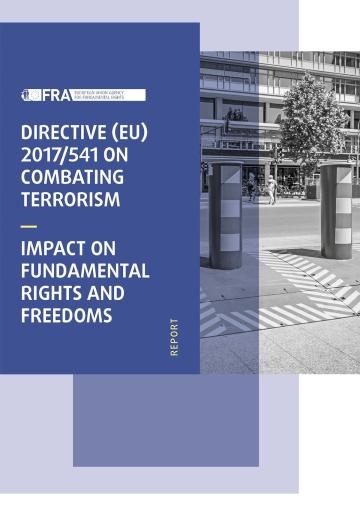Article 3 - Definitions
‘For the purposes of this Directive the following definitions apply:
(1) ‘child’ means a person below the age of 18;
(2) ‘holder of parental responsibility’ means any person having parental responsibility over a child; [...]
With regard to point (1) of the first paragraph, where it is uncertain whether a person has reached the age of 18, that person shall be presumed to be a child.‘
Article 4 - Right to information
‘1. Member States shall ensure that when children are made aware that they are suspects or accused persons in criminal proceedings, they are informed promptly about their rights [...].‘
Article 5 - Right of the child to have the holder of parental responsibility informed
‘1. Member States shall ensure that the holder of parental responsibility is provided, as soon as possible, with the information that the child has a right to receive in accordance with Article 4. [...]‘
Article 6 - Assistance by a lawyer
‘1. Children who are suspects or accused persons in criminal proceedings have the right of access to a lawyer [...].‘
Article 7 - Right to an individual assessment
‘1. Member States shall ensure that the specific needs of children concerning protection, education, training and social integration are taken into account.
2. For that purpose children who are suspects or accused persons in criminal proceedings shall be individually assessed. The individual assessment shall, in particular, take into account the child's personality and maturity, the child's economic, social and family background, and any specific vulnerabilities that the child may have. [...]‘
Article 10 - Limitation of deprivation of liberty
‘1. Member States shall ensure that deprivation of liberty of a child at any stage of the proceedings is limited to the shortest appropriate period of time. Due account shall be taken of the age and individual situation of the child, and of the particular circumstances of the case.
2. Member States shall ensure that deprivation of liberty, in particular detention, shall be imposed on children only as a measure of last resort. Member States shall ensure that any detention is based on a reasoned decision, subject to judicial review by a court. Such a decision shall also be subject to periodic review, at reasonable intervals of time, by a court, either ex officio or at the request of the child, of the child's lawyer, or of a judicial authority which is not a court. Without prejudice to judicial independence, Member States shall ensure that decisions to be taken pursuant to this paragraph are taken without undue delay.
Article 12 - Specific treatment in the case of deprivation of liberty
‘1. Member States shall ensure that children who are detained are held separately from adults, unless it is considered to be in the child's best interests not to do so.
2. Member States shall also ensure that children who are kept in police custody are held separately from adults, unless:
(a) it is considered to be in the child's best interests not to do so; or
(b) in exceptional circumstances, it is not possible in practice to do so, provided that children are held together with adults in a manner that is compatible with the child's best interests. [...]
5. When children are detained, Member States shall take appropriate measures to:
(a) ensure and preserve their health and their physical and mental development;
(b) ensure their right to education and training, including where the children have physical, sensory or learning disabilities;
(c) ensure the effective and regular exercise of their right to family life;
(d) ensure access to programmes that foster their development and their reintegration into society; and
(e) ensure respect for their freedom of religion or belief.
The measures taken pursuant to this paragraph shall be proportionate and appropriate to the duration of the detention. [...]‘










